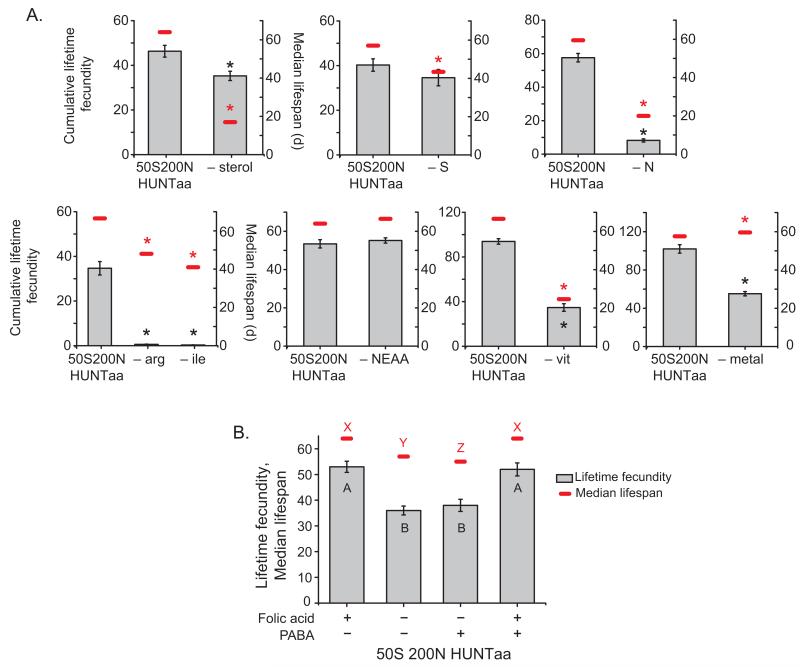Figure 2.
Nutrient-specific effects on Drosophila fitness traits. (a) From the holidic diet, omitting cholesterol (– sterol), sugar (– S), amino acids (– N), arginine alone (– arg), isoleucine alone (– ile) or vitamins (– vit) shortened lifespan (P < 0.001, n = 100, for all comparisons, Log-rank test). Cumulative egg-laying was reduced by omission of either cholesterol, amino acids, arginine alone, isoleucine alone or vitamins (P < 0.016, n = 10 for all comparisons, Wilcoxon rank-sum test). Omission of the non-essential amino acids (– NEAA) had no effect on longevity (P = 0.28, n = 100, Log-rank test) or egg-laying (P = 0.71, n = 10, Wilcoxon rank-sum test) and removal of Ca, Cu, Fe, Mn and Zn (– metal) resulted in reduced egg-laying (P = 0.009, n = 5, Wilcoxon rank-sum test), and a small, but significant increase in lifespan (P = 0.002, n = 100, Log-rank test). Asterisks indicate significance (P < 0.05) versus complete holidic diet control. Bars represent mean ± s.e.m. (b) Lifespan and egg laying for flies on media without folic acid. Omission of dietary folic acid significantly shortened lifespan (P < 0.016, n = 100, in both comparisons, Log-rank test) and reduced egg laying (P < 0.002, n = 10, in both comparisons, Wilcoxon rank-sum test). This was not rescued by addition of para-amino benzoic acid that microbes but not flies can convert to folic acid. Unique letters indicate significant differences. Bars represent mean ± s.e.m.

